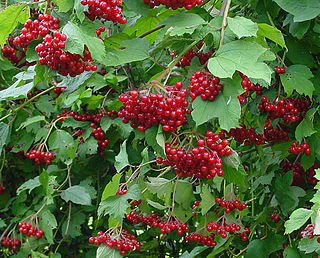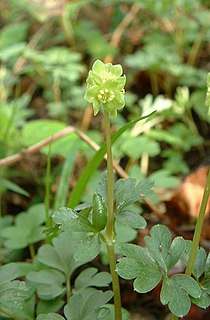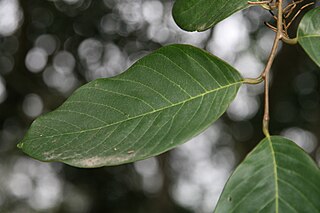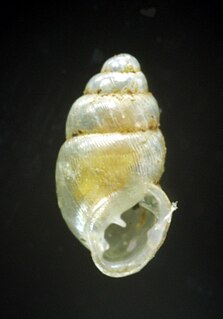
Felidae is a family of mammals in the order Carnivora, colloquially referred to as cats, and constitutes a clade. A member of this family is also called a felid. The term "cat" refers both to felids in general and specifically to the domestic cat.

Viburnum is a genus of about 150–175 species of flowering plants in the moschatel family Adoxaceae. Its current classification is based on molecular phylogeny. It was previously included in the honeysuckle family Caprifoliaceae.

Adoxaceae, commonly known as moschatel family, is a small family of flowering plants in the order Dipsacales, now consisting of five genera and about 150–200 species. They are characterised by opposite toothed leaves, small five- or, more rarely, four-petalled flowers in cymose inflorescences, and the fruit being a drupe. They are thus similar to many Cornaceae.

Juniperus monticola, or Mountain juniper, is a species of conifer in the family Cupressaceae. It is found only in Mexico.

The scarce fritillary is a species of butterfly in the family Nymphalidae. It is found in Austria, Belgium, Bulgaria, Czech Republic, Finland, France, Germany, Greece, Hungary, Kazakhstan, Lithuania, Luxembourg, Poland, Romania, Russia, Serbia and Montenegro, and Sweden.
Cassine viburnifolia is a mangrove plant of tropical Asia in the staff vine family Celastraceae. The specific epithet viburnifolia refers to how the plant's leaves resemble those of the genus Viburnum.

Lovoa trichilioides, also called African walnut, Congowood, dibetou or tigerwood, is a species of plant in the family Meliaceae. It is found in Angola, Cameroon, the Republic of the Congo, the Democratic Republic of the Congo, Ivory Coast, Gabon, Ghana, Liberia, Nigeria, Sierra Leone, Tanzania, and Uganda. It is threatened by habitat loss. Germination success is somewhat limited by short-lived seeds which are heavily predated. Exploitation rates are high. It is one of the two principal timber species in Congo.
Viburnum arboreum is a species of plant in the Adoxaceae family. It is endemic to Jamaica.

Viburnum costaricanum is a species of plant in the Adoxaceae family. It is found in Costa Rica and Panama. It is threatened by habitat loss.
Viburnum divaricatum is a species of plant in the Adoxaceae family. It is endemic to Ecuador. Its natural habitat is subtropical or tropical moist montane forests. It is threatened by habitat loss.
Viburnum elatum is a species of woody plant in the family Adoxaceae. It is endemic to eastern Mexico.
Viburnum hondurense is a species of plant in the Adoxaceae family. It is endemic to Honduras.

Viburnum maculatum is a species of plant in the family Adoxaceae. It is found in Montenegro on Lovćen and Orjen mountains, as well as in parts of Bosnia and Herzegovina. This plant is a xerophyte, and grows on karst mountain terrains.
Viburnum molinae is a species of plant in the Adoxaceae family. It is endemic to Honduras.
Viburnum mortonianum is a species of plant in the Adoxaceae family. It is found in El Salvador and Guatemala.

Viburnum stellato-tomentosum is a species of plant in the Adoxaceae family. It is found in Costa Rica and Panama. It is threatened by habitat loss.
Viburnum subpubescens is a species of plant in the Adoxaceae family. It is endemic to Honduras.

Viburnum nudum is a plant in the genus Viburnum within the muskroot family, Adoxaceae..

Carychium is a genus of very small air-breathing land snails, terrestrial pulmonate gastropod mollusks in the family Ellobiidae.
Ascarophisnema is a genus of parasitic nematodes, belonging to the family Cystidicolidae. Species of Ascarophisnema are parasitic as adults in the gastrointestinal tract of fish. According to the World Register of Marine Species, the genus currently (2019) includes a single species, Ascarophisnema tridentatum.











